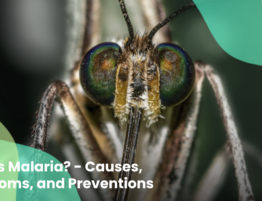
Although love-making can be a great bonding activity to deepen the intimacy with your partner, it is important to first acknowledge and be honest regarding each other’s sexual history to prevent both sides from contracting sexually transmitted diseases. The problem is many people are afraid to seek medical care and to constantly have their vital reproduction organs checked through STD testing. We often encounter patients suffering STDs who would often be too late in receiving the attention needed leading them toward death sooner or else chronic complication, one of them being infertility, a condition that any aspiring parents hate to hear.
Where is the nearby clinic to get std testing in Bali? See what Puri Medical Clinic in Bali provides concerning Sexually Transmitted Infection (STI) Testing and Treatment.
From when to get std testing, what STD testing you should take, and how is STD testing done? We will answer most of these frequently asked questions to give you a better introduction to STD testing.
When to get STD testing?
So, when to get STD testing? It is recommended for those who have been sexually active to get tested. STD testing becomes quite critical to perform if you are having unprotected sex not only with one partner but multiple people you don’t quite know especially in terms of their sexual activity records. Therefore, to anticipate a sexually transmitted disease, one of the ways is to apply for protection. One who suffers from STD might not show any symptoms. An HIV-positive patient, for instance, takes around 3-12 weeks to detect. People can say they’re fine and fall ill the next day because of it. We believe no one wants to get through that horrible situation.
Common STDs are recoverable however if they are let grow, they might endanger your life. It is advisable for people aged 13-64, male and female, to receive HIV tests at least once in their life. Women should have gonorrhea and chlamydia tests every year (will be better done every 3-6 months) if they have routine sexual intercourse, especially with several anonymous partners. Women in early pregnancy should also carry out tests for syphilis, HIV, hepatitis B, hepatitis C, gonorrhea, and chlamydia to ensure the health of both mothers and infants. People who have consummated through anal and oral sex also should pull off the throat and rectal tests.
Keep in mind that PAP and the gynecologic test do not include sexually transmitted infection (STI) testing.
Read more: The Main Reasons Why You Should Test for STD’s
What STD Testing Should You Take? Get STD Testing Now Before It’s Too Late
To determine what STD testing you should take and understand how it is done are in the following:
Chlamydia and Gonorrhea
Chlamydia and gonorrhea are two common STDs that may trigger the pelvic inflammatory disease. These two will eventually lead to infertility and can be quite problematic because the inflicted might not show any signs of contracting them.
How is the STD testing done?
You will get through screening to observe for the signs of chlamydia and gonorrhea. This can be done in two ways, either by swab or urine test. Swab, in this case, is taken from within the cervix or penis.
HIV, Syphilis, and Hepatitis
HIV and syphilis testing should be received annually when you are prone to a high risk of STI from unsafe sex practices. It should be part of your routine to undergo HIV and syphilis testing when you have reached adolescence. The diseases can spread from mothers to infants therefore it is advisable for one to perform the test once in a lifetime to identify early HIV and syphilis. People born around 1945-1965 also have the tendency to contract hepatitis C so we recommend those to do a screening.
How is the STD testing done?
Both HIV and hepatitis are taken by swab or blood sample. People suspected of having syphilis are to take swabs in their sore genital areas.
Genital Herpes
Herpes infection can transmit to others. There are 2 types of herpes; type 1 where it causes fever blisters, type 2 is usually the one responsible for genital sores.
How is the STD testing done?
There is no specific screening test for herpes but usually, your medical professional performs tissue scraping in the area of blisters and examines it in the lab. A blood test might be necessary to identify the type of herpes virus inflicting the patient.
HPV
Human papillomavirus is responsible for most cases of cervical cancer, cancer of the vagina, anus, penis, and genital warts. HPV infects people who are sexually active and the virus will most likely vanish over 2 years.
How is the STD testing done?
HPV testing for women includes a Pap test (to detect unusual cell growth within the cervix every 3 years) along with an HPV test every 5 years in case the Pap test result is fine. For men, we can identify signs of infection by biopsy and visual check. The HPV vaccine is available but might not be effective especially when patients have been involved in sexual intercourse.
Get STD testing now to save your life
We understand that it might be too uncomfortable consulting a matter you want to keep private to almost anyone. Our medical professionals at Puri Medical Clinic guarantee a comfy and safe ambiance for our patients especially those who require confidentiality in getting the help they need to solve their worries, recover their health effects, and be mindful of safe sex practices.








